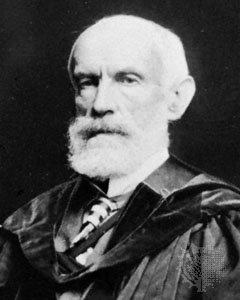child psychology
discipline
also called child development
the study of the psychological processes of children and, specifically, how these processes differ from those of adults, how they develop from birth to the end of adolescence, and how and why they differ from one child to the next. The topic is sometimes grouped with infancy, adulthood, and aging under the category of developmental psychology.
 As a scientific discipline with a firm empirical basis, child study is of comparatively recent origin. It was initiated in 1840, when Charles Darwin (Darwin, Charles) began a record of the growth and development of one of his own children, collecting the data much as if he had been studying an unknown species. A similar, more elaborate study published by German psychophysiologist William Preyer put forth the methods for a series of others. In 1891 American educational psychologist G. Stanley Hall (Hall, G. Stanley) established the Pedagogical Seminary, a periodical devoted to child psychology and pedagogy. During the early 20th century, the development of intelligence tests and the establishment of child guidance clinics further defined the field of child psychology.
As a scientific discipline with a firm empirical basis, child study is of comparatively recent origin. It was initiated in 1840, when Charles Darwin (Darwin, Charles) began a record of the growth and development of one of his own children, collecting the data much as if he had been studying an unknown species. A similar, more elaborate study published by German psychophysiologist William Preyer put forth the methods for a series of others. In 1891 American educational psychologist G. Stanley Hall (Hall, G. Stanley) established the Pedagogical Seminary, a periodical devoted to child psychology and pedagogy. During the early 20th century, the development of intelligence tests and the establishment of child guidance clinics further defined the field of child psychology.A number of notable 20th-century psychologists—among them Sigmund Freud (Freud, Sigmund), Melanie Klein (Klein, Melanie), and Freud's daughter, Anna Freud (Freud, Anna)—dealt with child development chiefly from the psychoanalytic point of view. Perhaps the greatest direct influence on modern child psychology was Jean Piaget (Piaget, Jean) of Switzerland. By means of direct observation and interaction, Piaget developed a theory of the acquisition of understanding in children. He described the various stages of learning in childhood and characterized children's perceptions of themselves and of the world at each stage of learning.
The data of child psychology are gathered from a variety of sources. Observations by relatives, teachers, and other adults, as well as the psychologist's direct observation of and interviews with a child (or children), provide much material. In some cases a one-way window or mirror is used so that children are free to interact with their environment or others without knowing that they are being watched. Personality tests, intelligence tests, and experimental methods have also proved useful in understanding child development.
Despite attempts to unify various theories of child development, the field remains dynamic, changing as the fields of physiology and psychology develop.
- grace
- Grace Abbott
- Grace Aguilar
- Grace Coolidge
- Grace Darling
- Grace Hoadley Dodge
- Grace Kelly
- Grace Moore
- Grace Murray Hopper
- grace note
- Grace Ogot
- Grace Paley
- Grace, William Gilbert
- Grace, William R.
- Gracias
- Gracias a Dios, Cape
- Gracie Allen
- Graciliano Ramos
- Graciosa Island
- Gracián, Baltasar
- grackle
- Grade, Chaim
- graded school
- Grade, Lew, Baron Grade of Elstree
- grader